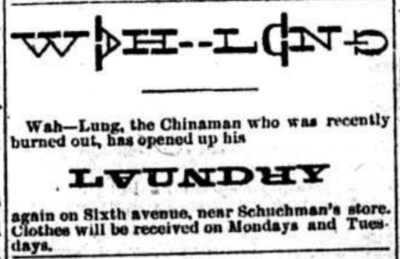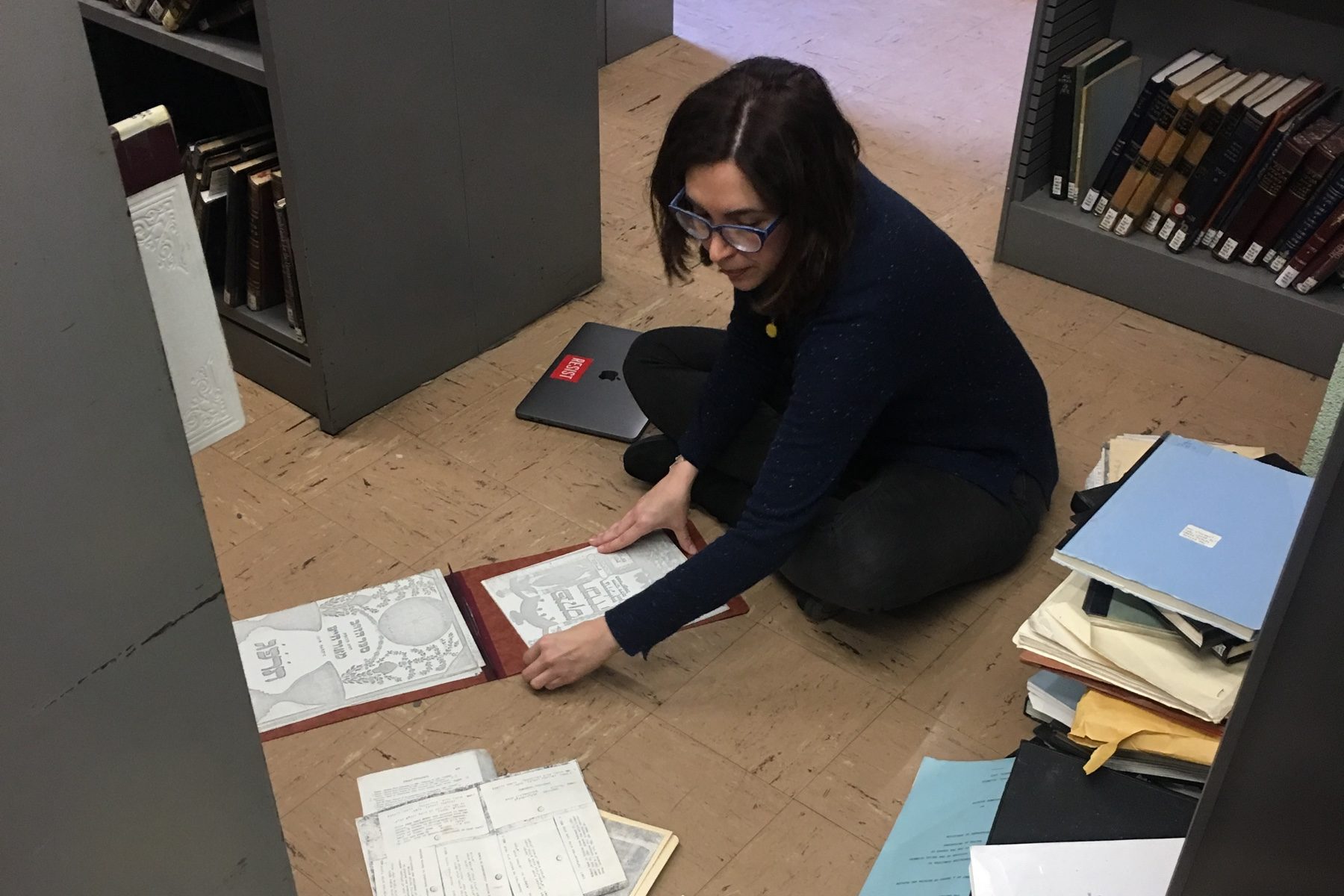
The earliest advertisement for a Chinese laundry in Homestead (The Local News, Feb. 6, 1886)
The [state Historical and Museum Commission] has completed its investigation and is satisfied that the structures have no history worth preserving.
—Pittsburgh Post-Gazette on the last Chinese laundry in the Homestead District (Dec. 29, 1988, emphasis mine)
I never expected to find Chinese people in Homestead, because they have been omitted from the histories of Homestead and places like it. As I kept stumbling upon references to them alongside Homestead’s Jewish residents (my primary research topic), I shared my discoveries with fellow local historians who seemed equally surprised—not only at the early presence of Chinese people in Homestead, but also by the extremity of the racism they faced.
For seven years I collected documentation for this group wherever I could find it. I kept waiting for the records to show that they had developed a community like other immigrant groups in Homestead. Eventually, I wrote the story of these men, as best as I could reconstruct it, to explain why they remained trapped in their isolation.
To research Jewish life in small town America around the turn of the 20th century is to examine the prerequisites for building community in unlikely places—people, opportunity, and tolerance. To research Chinese life in these same places is to see how the laws restricting Chinese immigration specifically undermined each of these factors, confining the Chinese people who were already here to inescapably bleak lives…
Read The Chinese Laundrymen of Homestead
Later, with the help of Squirrel Hill historian Lauren Winkler, I expanded that research into a public lecture, The Chinese Laundrymen of Homestead and Squirrel Hill (video below).
